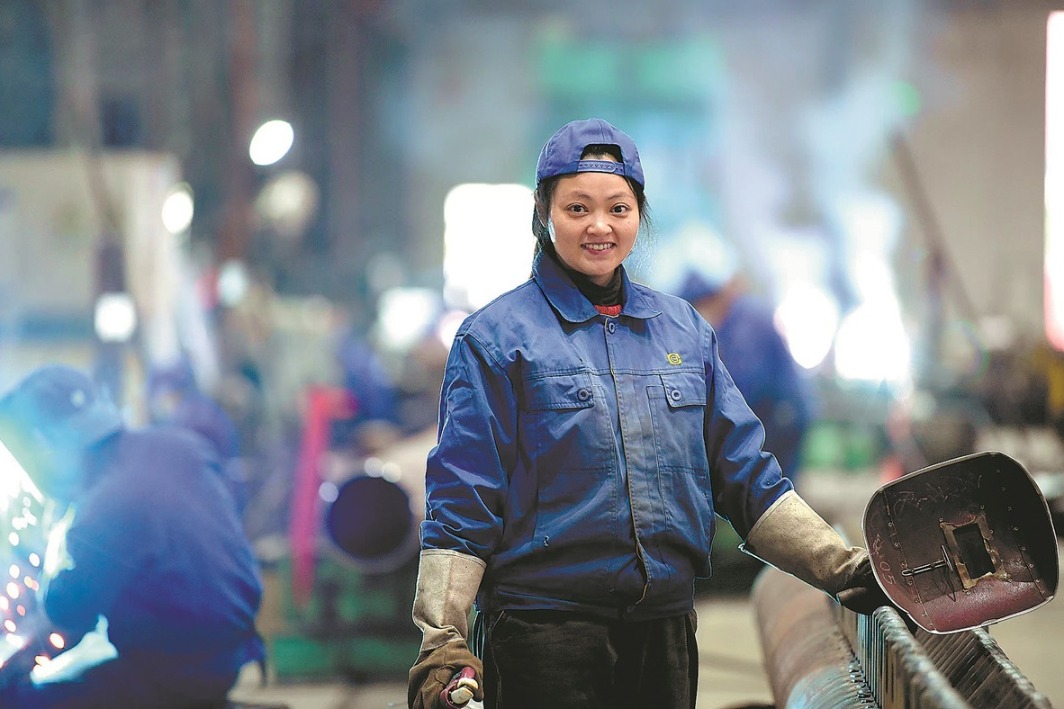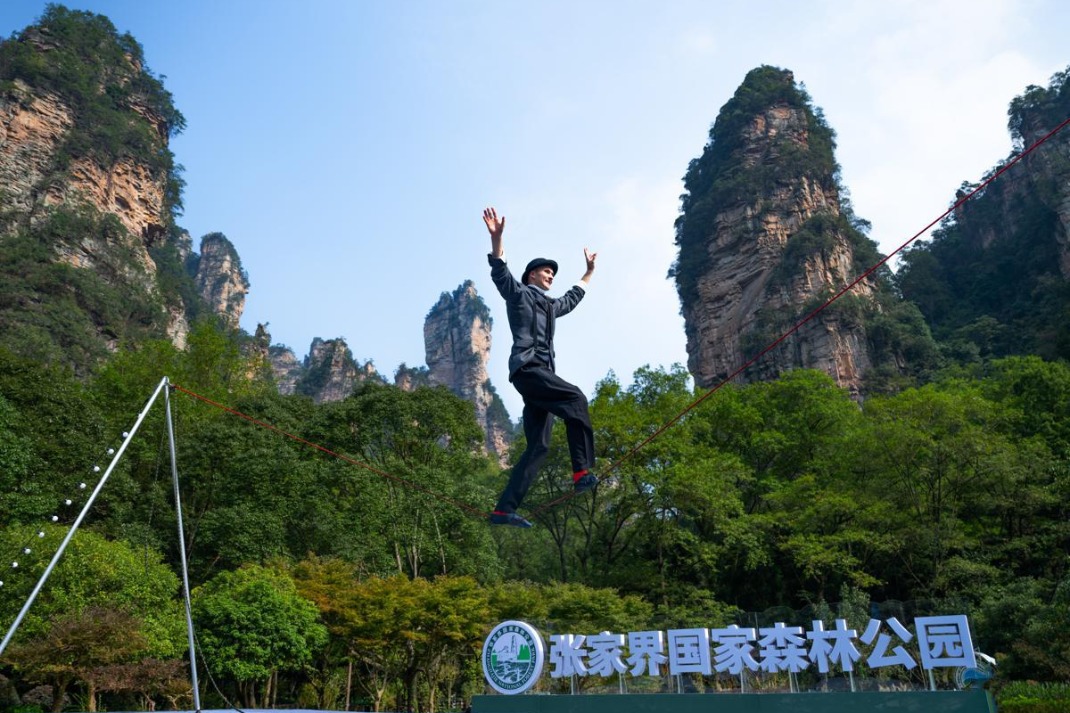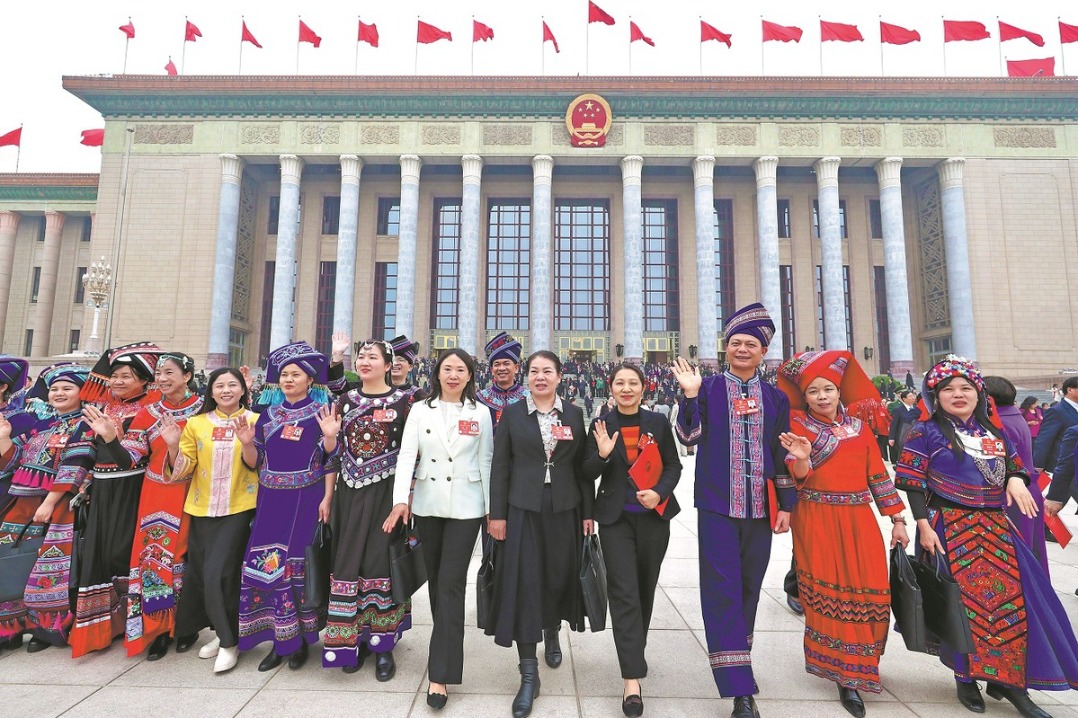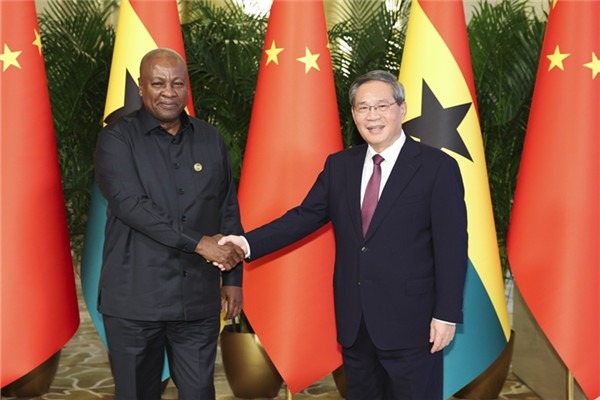Xi Story: A determined advocate for teaching, education

BEIJING -- When millions of educators in China celebrate Teachers' Day on Wednesday, they do so with sincere greetings from President Xi Jinping.
Xi, in a reply letter to eight rural teachers, commended the dedication of about 1.2 million college graduates who have participated in a national program to teach in rural areas. He encouraged them to stay true to their original aspirations, continue to improve their skills in education, and support the healthy growth of children.
In the letter, he also extended festive greetings to teachers and educators across the country. China has roughly 18 million full-time school teachers.
Xi holds the teaching profession in high esteem. Using a well-known metaphor in Chinese culture for teachers' devotion, he said, "A stick of chalk and a modest podium shape the fate of a nation."
According to Xi, good educators are expected to possess ideals and convictions, moral integrity, knowledge and benevolence. His respect for teachers stems in part from the mentorship that shaped his life.
On the eve of Teachers' Day in 2016, Xi returned to Beijing Bayi School, where he was a student decades ago. Seeing his teachers again, Xi slowed his pace and held their hands firmly. When addressed as "leader," he demurred: "Here, there are no leaders. Everyone is a student."
From his grassroots posts to the nation's top leadership, Xi has consistently made teachers and education a priority in governance. He has, notably, supported paired-assistance programs to build schools in less developed regions, visited campuses to learn about teachers' work and living conditions, and discussed education issues with national legislators and political advisors.
In 2021, when Xi honored poverty-reduction role models at the Great Hall of the People in Beijing, he bent down to present a medal to a rural teacher who sat in a wheelchair and gently asked her to take care of herself.
For a country facing the challenge of imbalanced educational resources across regions due to its large population and sprawling territory, Xi insists that education must serve the public good, and that the future can be secured only when success is achieved in education.
Guided by this belief, China is striving to become a global leader in education by 2035, fueling its pursuit of modernization and national rejuvenation.
In a reply letter in June 2024, Xi encouraged Andrew Chi-Chih Yao, a Turing Award laureate and professor at Tsinghua University, to explore new ways of nurturing innovative talent, fostering interdisciplinary work and advancing frontier research.
Vocational education plays a prominent role in China's efforts to strengthen its education sector. Over the past decade, the sector has experienced rapid growth, marked by a surge of master craftsmen and highly skilled workers. This underpins China's status as the only country in the world to have all the industrial categories listed in the United Nations Industrial Classification.
A little-known fact is that Xi concurrently served as president of a vocational school in the city of Fuzhou for six years in the 1990s during his tenure as Party chief of this capital city of East China's Fujian province.
At the entrance to this school, now known as Minjiang University, stands a stone tablet inscribed with the guiding principle proposed by Xi: "Not striving to be the largest, but the best and most attuned to societal needs."
This philosophy heralded his vision for vocational education in China to shift gears and enable more children to fulfill their potential. The country now boasts the largest vocational education system in the world with more than 10 million graduates annually.
The rapid growth of education has been underpinned by a fiscal commitment -- government spending on the sector is generally no lower than 4 percent of GDP, a benchmark first reached in 2012.
"China has been sustaining the world's largest education system with a fiscal education investment intensity at a level comparable to the global average," said Guo Peng, an official with the Ministry of Education.
Xi has pushed hard to improve teachers' pay and welfare -- especially in rural areas where many live modestly.
Under his aegis, China issued a policy document dedicated to rural teachers and took actions to ensure that the average income of primary and secondary school teachers nationwide measured up to or surpassed that of local civil servants.
Xi's latest letter has struck a chord among educators.
Liu Yiying, who left her hometown in coastal Shandong province in East China to teach at a primary school on the plateau of Xizang autonomous region in the southwest, said it has renewed her sense of purpose.
"Education is a relay of torchbearers. We must run our leg with unwavering commitment," she added.





































